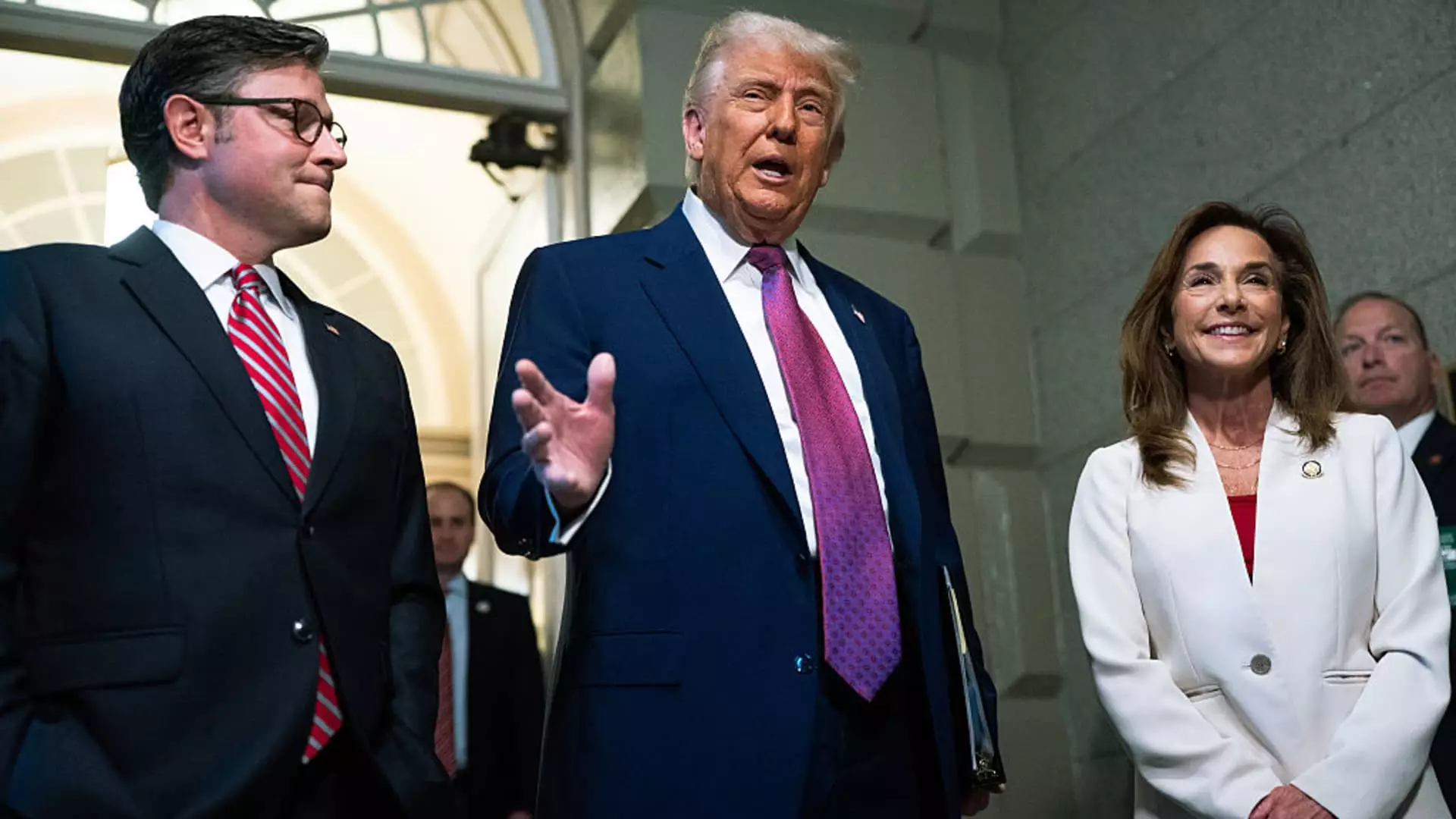In a deeply polarized political landscape, the passage of President Donald Trump’s highly contentious tax bill by the House of Representatives signifies more than mere legislative progress; it exemplifies a glaring disregard for social equity and fiscal responsibility. Celebrated by Republican leaders as a victory, the narrow vote—215 to 214—stands as a testament to how far the party is willing to bend in order to fulfill a vision that prioritizes tax cuts for the wealthy while undermining essential social safety nets. Every Democrat and a handful of Republicans rebuffed this initiative, highlighting a crucial rift within the party itself.
The Republican leadership claims this legislation is a grand achievement, but the path to its passage is riddled with compromises that reveal a troubling ethos: one that favors the affluent at the expense of the most vulnerable populations. Even the conservative House Freedom Caucus displayed an oscillation in loyalty; they celebrated the speedy passage of the bill, yet it required bending over backward to accommodate various factions within the party. Amidst this chaos, the fundamental question remains: at what cost do we secure tax advantages for a select few?
The Illusion of Bipartisan Success
The intricate crafting of over 1,000 pages of legislation, accompanied by 42 pages of amendments, could be likened to a magician’s sleight of hand. The illusion of success is carefully curated, aiming to present the legislation as beneficial not just to hardlined conservatives but also to moderates. However, upon deeper inspection, the changes made seem less about genuine compromise and more about political maneuvering. Incremental inclusions, such as advancing work requirements for Medicaid recipients, represent a victory for conservatives, while similarly, the increased salt deduction cap is nothing more than a financial lifeline for the wealthy.
This strategy could have implications for the American public at large. The proposed cuts to social safety net programs could result in diminished resources for the disenfranchised segments of society, while simultaneously granting significant benefits to the wealthier demographic—a point noted in the nonpartisan Congressional Budget Office analysis. This stark disparity challenges the very essence of American values: fairness and equality.
The Fragile Future of American Economy
As the Republican leadership expresses confidence in moving the bill through the Senate, they overlook fundamental economic principles that suggest rampant cutting and spending will lead to future fiscal chaos. Markets have reacted negatively, with the yield on the 30-year Treasury bond creeping up as fears of burgeoning federal deficits loom large on the horizon.
It’s puzzling how the architects of this tax overhaul maintain a positive outlook on economic growth when analysis indicates that the richest households will benefit disproportionately, while the poorest will see their resources dwindle. This outlook seems dangerously naïve, reminiscent of past administrations that pursued similar policies only to face backlash from increasing national debt and socioeconomic divides.
The Enabling of Inequality
While proponents tout the bill as a fulfillment of Trump’s campaign promises, what remains unspoken is the deeply troubling reality that comprehensive tax legislation, designed to primarily uplift the affluent, undermines the social contract between government and citizens. It offers a disheartening blueprint for governance that enables inequality rather than ameliorates it—a point many critics have raised.
Utilizing the guise of economic rejuvenation, the bill could very well accelerate the wealth gap that has widened in the past decades. The American Dream, once broadly accessible, increasingly appears to be skewed in favor of those who have always had more than enough. This exacerbation of inequality threatens not only the social fabric of the nation but also the very principles upon which it was founded—principles that ought to inspire public policy that works for all, not merely for the privileged few.
This tax bill, branded as “big and beautiful,” may well turn out to be a nightmare for the common American, with repercussions that could resonate for generations to come. The real test of leadership lies not in the ability to navigate political waters, but in the commitment to crafting policies that genuinely uplift and empower every citizen, rather than merely catering to the whims of the wealthy. The clock is ticking, and the implications of this bill will likely echo far beyond the rostrum of the House floor.


Leave a Reply